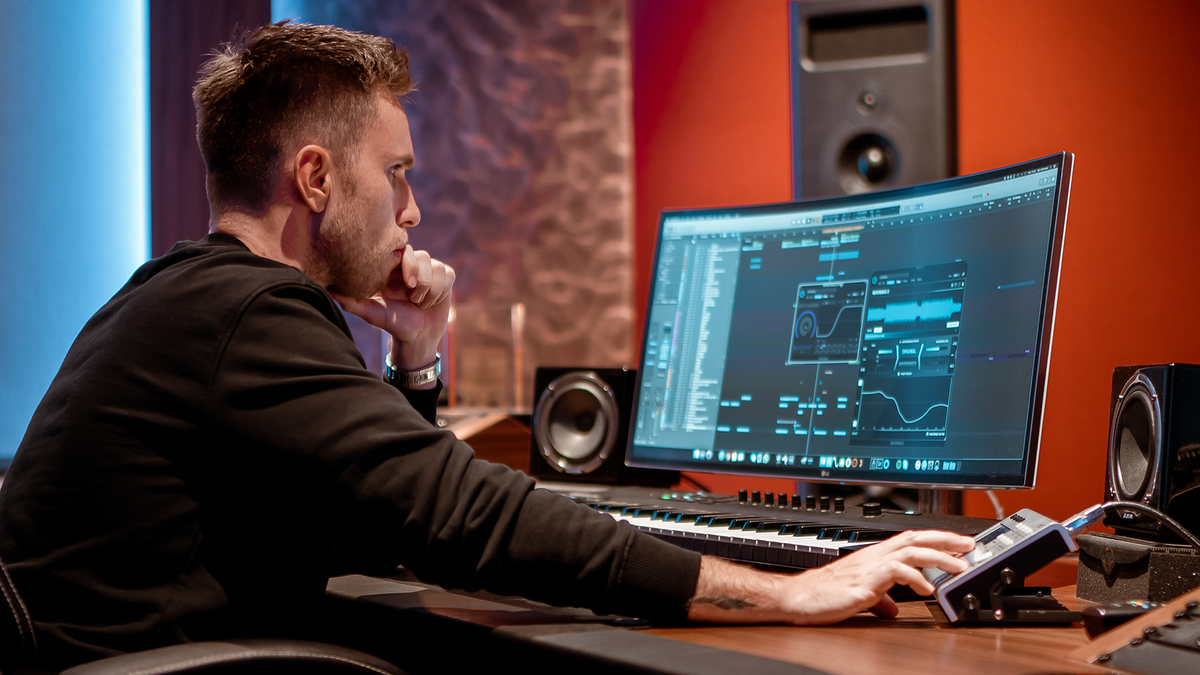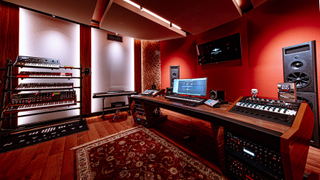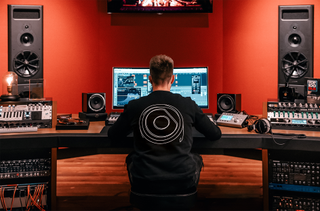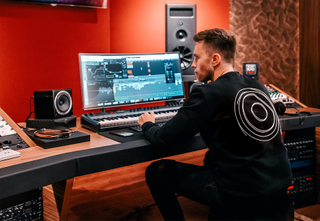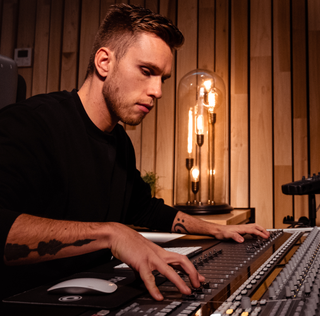Nicky Romero found success in 2012 after the electro-house melodies of “Toulouse” attracted a generation of EDM fans to this imaginative producer. Romero then collaborated with the late Avicii on the astronomical hit “I could be the one”, scoring a number 1 in the UK, Poland and Hungary, before storming the charts in virtually every other European country.
Fast track through 2021, and Nicky Romero is a true EDM superstar, making annual appearances in DJ Mag’s poll of the world’s top 100 DJs and continuing to record and release house and music. ‘Bright neon EDM. Following the release of his latest single, Acid Is My DNA, we caught up with Romero to learn more about his approach to music production and advice to music creators, while also browsing through his impressive Dutch. workshop space. Aspiring EDM producers, take note.
How and when did you start making music?
“I have been in music since I was little. My dad played drums, and that’s how I started out too. Basically it all started in my bedroom where I was sitting almost every day making music. Some people said I didn’t know what I wanted to be, but I think maybe I proved them wrong [laughs]. “
I have tried many different DAWs like FL Studio, Cubase, etc. But Logic suits me the best, the workflow is really nice and the layout makes sense to me.
What equipment were you using when you started?
“Just FL Studio with basic speakers, especially at the start of the music, it doesn’t really matter what gear you have. As long as you have a DAW that you feel comfortable with. More equipment makes things complicated, and it’s just a matter of spending hours developing your skills.
How does that compare to now – could you tell us about your current studio setup?
“Now my studio has all the equipment that I love. I just bought new speakers (PMC XBD-MB2) and love them. I also have a wide range of hardware synths that I use a lot in my Monocule alter ego for deeper sounds!
How has your approach to creating music changed over the years? What have you learned from spending over a decade as a successful EDM artist?
“Go with the flow!” Make the music that you feel that day or that week and don’t try to push your creativity in a different direction because the result will not be what you are looking for.
I always do a mix / master myself to test the records in a club, for me it’s the best way to feel if the track is where I want it to be
“On top of that, I always try to define the basics of the song and make sure that all the ingredients (melodies, chords, arrangements, etc.) are there and worry about the sound design and the mixing to a later stage. “
Could you tell us about five of your most used plugins – what’s great about them, what you use them for, etc …
Start-up: “My own plugin, it’s so easy to use for the sidechain and the results are great! We are currently working on Kickstart 2 which will have new features that will make a huge difference.
UAD: “It’s software that runs on a hardware device that gives it a little more power, there are a lot of pieces of brand A hardware (Moog, Neve, Manley, Avalon etc) that they’ve recreated in software and they look amazing. My favorite bundle from there would be the Precision bundle, because it’s great for mastering!
Fab filter: “Just really high quality plugins, the Pro-Q 3 EQ is just my choice for EQ, sounds really clean, and has some very handy visual features.”
Master the mixing reference: “This is a great tool when you mix and master your song, you can quickly import audio files from your favorite artist to A / B with your song and compare in terms of sound, you can also see where the difference is. in terms of frequency. “
Xfer Serum: “Just such a powerful and diverse synthesizer, you can do anything with this plugin and the setting options are endless.”
Acid Is My DNA is inspired by one of my old tracks, Generation 303. I wanted to combine a more tech house feeling with a little touch of acid.
What DAW do you use, and why did you choose it?
“I use Logic Pro X. I have tried a lot of different DAWs like FL Studio, Cubase, etc. But Logic suits me the best, the workflow is really nice, and the layout makes sense to me.
Were there one or two pieces of equipment – instruments, synths, effects – that were essential to the creation of your last song?
“For my last track Acid Is My DNA, which is more of a technical club track, I used my hardware synths to get that real acid sound! Also in the mixing phase I used the Crane Song STC-8 to get that tight bass that really makes the club shake!
Can you tell us about some influences – musical or otherwise – behind this last track?
“Acid Is My DNA is inspired by one of my old tracks, Generation 303. I wanted to combine a more tech house feeling with a little bit of acid.”
Did you mix and master the song yourself?
“I always do a mix / master myself to test the records in the club, for me it’s the best way to feel if the track is where I want it to be. Once I feel it’s good, I send the stems to Niels from Instigate Studios to do the final mix and master!
When you’re still unsure of your own sound, go ahead and produce a whole bunch of tracks. Compare them with each other and try to note all the pros and cons
How do you usually start a track?
“Usually I have a melody in my head that I try to develop more on the piano, to make it catchy and to create chords around it. But it can be a little different each time, sometimes we have a voice that we can play with and build the track around it!
Conversely, how do you know when something is finished?
“You never really know, but I always test my records in clubs. There I have a good feeling if the track has the right energy, if the arrangement tells the story and does not waste energy. Once it works well in the clubs, I know it’s over for the outing.
Have you undertaken production work for other artists this year?
“I focused on my own productions either as Nicky Romero or my alias with deeper sounds, Monocule.”
If you could collaborate with any artist, living or dead, who would it be?
“Michael Jackson, to me he’s one of a kind and in a league of his own. Such an artist with his dance moves and stage appearances. His music was magical and continues to set limits for artists to this day.
What are your top three tips for young producers trying to be successful in 2021?
“When you’re still not sure about your own sound, go ahead and produce a whole bunch of songs. Compare them with each other and try to note all the pros and cons. Imitating others won’t work if you are at this point in your career. You will have to put a lot of effort into trying to find your sound, so that you can move on and produce your songs.
“Don’t be afraid to ignore the ‘standard’ producer rules. There are so many songs where normal music theory hasn’t been used, but blows up the roof of a club. “
“Don’t force yourself if you’re stuck with a project. Go ahead and do something else because pushing yourself is never going to get you the result you wanted. “
What’s the next step for you now that the new single is out?
“A lot. We have a lot of music in the works, and it’s also very exciting for me to create new kinds of sounds under my alias Monocule. I’m also super happy to be able to tour again and can’t wait to play on stages like Ultra Miami in March! Protocol Recordings tenth anniversary is also approaching next year, so sure you can expect some special things.
Nicky Romero’s Acid Is My DNA is now available on Protocol Recordings.

